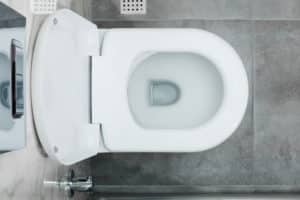
Sewer lines transport wastewater away from your home through underground plumbing that leads to local sewer mains. If a clog forms in the line or a line fails, it can create a raw sewage backup in your home in the lowest area- your basement spaces. If this happens, you will need to call the sewage damage cleanup experts in your area.
Sewage Damage Cleanup In St. Paul
What’s In The Water?
Basement back-ups present serious health hazards. Sewage contains a mix of both water and waste products, including human waste and household chemicals. Organic material often contains disease-causing organisms like bacteria, fungi, parasites, or viruses.
This “water” is extremely dirty due to these pathogens. While the bacteria that naturally live in the human gut are non-pathogenic inside the body, they can be pathogenic (dangerous) if they are ingested through physical or airborne contact with the nose, mouth, or open cut once they have left the body as waste. You can also get skin rashes.
Plus, raw sewage is an ideal medium for many other dangerous organisms that grow outside the body. For example, botulism, E-coli, salmonella, intestinal amoebas, and cholera can be carried in raw sewage.
Can the Smell Make you Sick?
Your most immediate danger from a residential sewage leak is the gases. Organic material decomposes quickly and emits odorous gases that can be hazardous to people’s health – especially when they come from human waste. Sewage generates carbon dioxide, methane, chlorine, nitrous oxide, sulfur dioxide, and hydrogen sulfide. At low levels, sulfur has a strong odor similar to rotten eggs and does not usually make you sick. However, at higher levels, hydrogen sulfide gas can definitely cause illness.
What To Do Until Done Right Restoration Arrives
Calling a professional sewage damage cleanup company is the only safe way to deal with a sewage flood in your basement. We have a dispatcher and technicians ready to respond immediately. However, if it is safe to enter, you can use these minutes to lessen the destruction. Check your home’s sewer cleanout. If the backup is in your basement, look for the cap on the basement floor and make sure that it’s easily accessible for the remediation team as needed. Other steps to mitigate the damage in your basement before the sewage damage cleanup team arrives:
- Evacuate all people and animals from the flooded area. (Sewage contaminates are hazardous to pets as well.)
- Turn off electrical power in the flooded area. Electrical wires or appliances might come in contact with standing water or wet materials.
- If the main circuit breaker, you can’t safely turn off the power; don’t go near electrical devices.
- Shut off the valve for the main water line of your home.
- Notify your insurance company about the sewage backup. Remember that sewer backups are not covered by standard homeowner’s insurance unless you’ve purchased extra endorsements for sewers and drains.
- Notify your municipal authority or sewer department if your home is connected to a public sewer.
- Don’t use the water supply system in your home until the backup problem is fixed: toilets, tubs, sinks. If it’s a mainline clog, the water will back up and then come up through the bathtubs or basement.
- Open windows or doors to let fresh air in and ventilate the area.
Done Right Carpet & Restoration, Inc. has been a water damage company leader since 1992. When you need flood cleanup, sewage damage cleanup, basement water damage repair, or any of our other water damage services, reach out to the technicians at the first sign of trouble.




